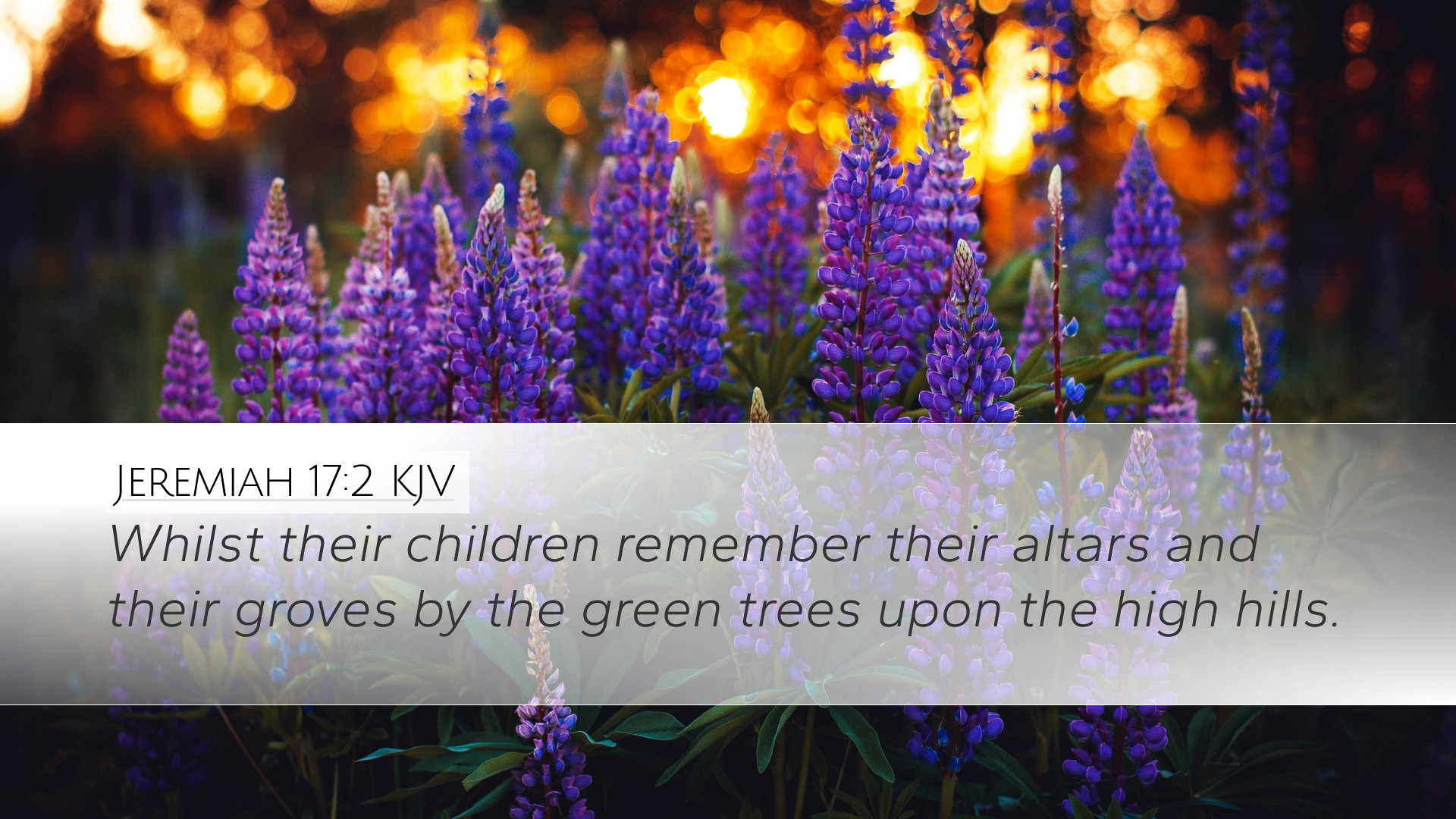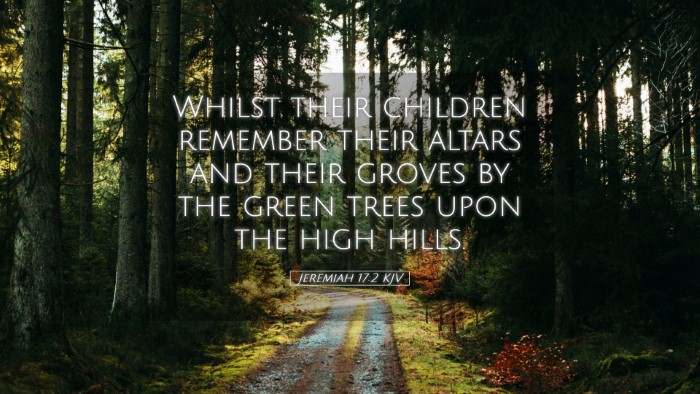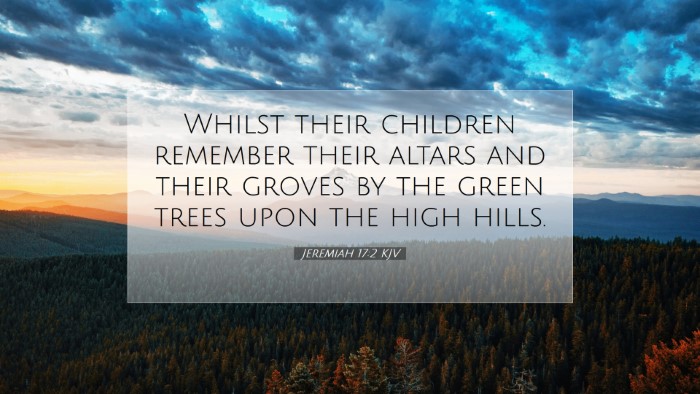Commentary on Jeremiah 17:2
Jeremiah 17:2 states: "Whilst their children remember their altars and their groves by the green trees upon the high hills." This verse illustrates the deep-set idolatry within Judah, calling attention to the people's mourning of their illicit worship practices. To understand the weight of this verse, we will pull insights from renowned public domain commentaries, providing a comprehensive view for pastors, theologians, and students of the Bible.
Understanding the Context
The Book of Jeremiah is situated during a tumultuous period in Judah's history, where the nation wavered between faithfulness and rebellion against God. The context surrounding Jeremiah 17 reveals the call to repentance in light of rampant idolatry and reliance on human wisdom over divine leadership.
Commentary Insights
Matthew Henry
Henry emphasizes the grievousness of idolatry as a societal sin that had corrupted the hearts of the people. He notes that the altars mentioned represent not just physical structures but the spiritual decline of the nation. The verse reveals how children, in their innocence, would be taught to remember the practices of their forefathers, signifying the generational transmission of sin and rebellion against God. He posits that these high places were often prominent for their visibility, a reflection of how idolatry sought to be recognized within the community.
Albert Barnes
Barnes elaborates on the phrase "remember their altars," interpreting it as a grim indication of the people's attachment to their traditions, despite their adverse consequences. He warns that the idea of 'remembering' is not merely passive; rather, it signifies an active perpetuation of idolatrous practices. Their altars and groves symbolize the spiritual darkness that enveloped the nation, casting a shadow over their covenant relationship with Yahweh. Barnes suggests that God, through Jeremiah, is speaking to a stubborn generation unwilling to forsake their familiar comforts of sin.
Adam Clarke
Clarke provides a detailed historical background, noting that the high places were often associated with the worship of hastily made idols and pagan deities, which fascinated the people in their quest for prosperity and security. He indicates how the "green trees" and "high hills" became sanctuaries of sin rather than spaces for divine worship. Clarke's commentary shines a light on the duality of worship, where outward practices often directly contradicted inner devotion to the one true God. He warns that those who follow God must avoid falling back into such idolatrous tendencies and strive to preserve the integrity of their worship.
Theological Implications
The implications of this verse run deep within the theological discourse on idolatry, remembrance, and spiritual fidelity. The remembrance of false worship practices underscores the concept that idolatry can be deeply ingrained within cultural heritage, making it difficult to eradicate without radical transformation by the Spirit of God.
Generational Sin
The verse speaks to the tragic reality of generational sin—a theme echoed throughout Scripture. The children of Judah were not merely passive observers but were, in fact, active participants in a legacy of disobedience. This serves as a sobering reminder to contemporary believers to assess what idols may be in their familial or cultural backgrounds, and to seek restoration through Christ.
Idolatry in Modern Context
Idolatry, although not manifesting as physical altars in modern society, takes various forms today, ranging from materialism to the worship of self. The call in Jeremiah 17:2 challenges believers to reflect on what occupies the high places of their hearts. What practices or philosophies are they unintentionally passing down to the next generation? The verse serves as an urgent reminder to prioritize true worship and devotion to God alone.
Conclusion
Jeremiah 17:2 provides a poignant insight into the spiritual landscape of Judah, urging a deep examination of the hearts and behaviors of God's people. Through the insights provided by Matthew Henry, Albert Barnes, and Adam Clarke, we glean essential truths about idolatry, generational sin, and the importance of steadfast worship. As pastors and theologians reflect on this passage, may they encourage congregations to break free from the cycle of sin and to root their identity in the unwavering truth of God's Word.


